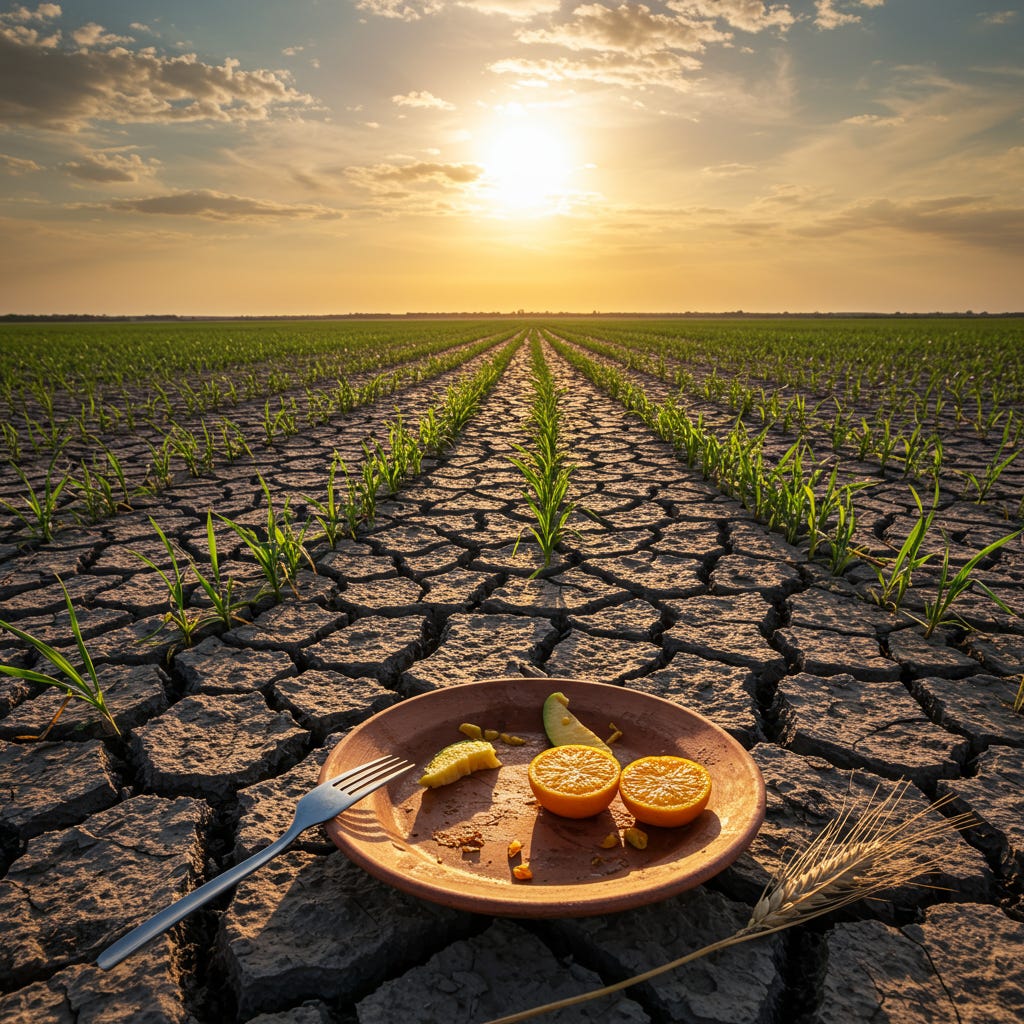Global Warming: A Recipe for "Skipping Breakfast"
How Global Warming Threatens the World’s Food Supply
Imagine a future where the simple act of enjoying a hearty breakfast becomes a luxury, a distant memory of a bygone era. This might sound like a scene from a dystopian novel, but a groundbreaking new study suggests it could become our stark reality. Climate change, the invisible titan reshaping our planet, is not just about melting glaciers and rising sea levels; it's already taking a significant bite out of the world's food supply, threatening to leave us all "skipping breakfast" as temperatures continue to rise.
For decades, scientists have warned of the long-term impacts of global warming on agriculture, from altered growing seasons to increased pest outbreaks. However, this recent research paints a far more immediate and alarming picture. The study, published in the prestigious journal Nature Food, reveals that key staple crops – the very foundation of our global food security – are already experiencing measurable declines in yield due to the subtle yet relentless creep of rising temperatures.
Think of it this way: plants, much like humans, have optimal conditions under which they thrive. Just as we might feel sluggish and unproductive in extreme heat, crops too experience stress when temperatures exceed their ideal range. This "thermal stress" disrupts critical physiological processes, from photosynthesis (the plant's food-making factory) to nutrient uptake. The result? Smaller harvests, less nutritious produce, and ultimately, less food to go around.
The researchers analyzed decades of agricultural data alongside detailed climate models, focusing on major food baskets across the globe. Their findings were stark: for every degree Celsius increase in average global temperature, there's a demonstrable decrease in the yields of crucial crops like wheat, rice, maize, and soybeans. These aren't minor fluctuations; these are statistically significant declines that, when scaled up globally, translate into a substantial reduction in the total calories available to feed an ever-growing population.
Consider wheat, a staple for billions. The study found that warmer nights, a particularly insidious aspect of climate change, are disproportionately impacting wheat yields. While we often focus on daytime temperatures, plants continue to respire and metabolize during the night. Elevated nighttime temperatures increase the rate of respiration, meaning the plant burns through more of the energy it produced during the day, leaving less for grain development. It's like an athlete performing an intense workout all day and then having to keep running all night – eventually, their energy reserves deplete.
Maize, another cornerstone of global diets, is similarly vulnerable. Extreme heat events during critical growth stages can lead to "pollination failure," where the plant simply can't reproduce effectively, resulting in barren cobs. The study highlights how the frequency and intensity of these heatwaves are increasing, directly impacting the breadbasket regions of the world.
The implications of these findings are profound. We are not just talking about minor inconveniences or slight price increases. We are talking about a systemic erosion of our ability to feed ourselves. "Skipping breakfast" becomes a metaphor for a world grappling with widespread food insecurity, increased food prices, heightened competition for dwindling resources, and potentially, social unrest. Vulnerable communities, particularly in developing nations already struggling with poverty and malnutrition, will bear the brunt of this crisis.
What can be done? The urgency of reducing greenhouse gas emissions has never been clearer. The longer we wait to reduce emissions, the more money we lose, not just in terms of economic disruption but in the direct cost of mitigating future climate impacts and adapting our food systems. Transitioning to renewable energy, improving energy efficiency, and adopting sustainable land-use practices are paramount. But the study also underscores the need for proactive adaptation strategies in agriculture. This includes developing heat-tolerant crop varieties through genetic research, implementing precision irrigation techniques to conserve water, and promoting climate-smart agricultural practices like agroforestry and conservation tillage. Without such interventions, we risk a future where “The land you leave to your kids will be good for something, but not for farming.”
The "breakfast" we stand to lose isn't just a meal; it's a symbol of global food security and stability. The science is unequivocal: climate change is already impacting our food supply. Ignoring these warnings is no longer an option. The time to act decisively, both to mitigate further warming and to adapt to the changes already underway, is now. Our ability to put food on the table, for ourselves and for future generations, literally depends on it.


